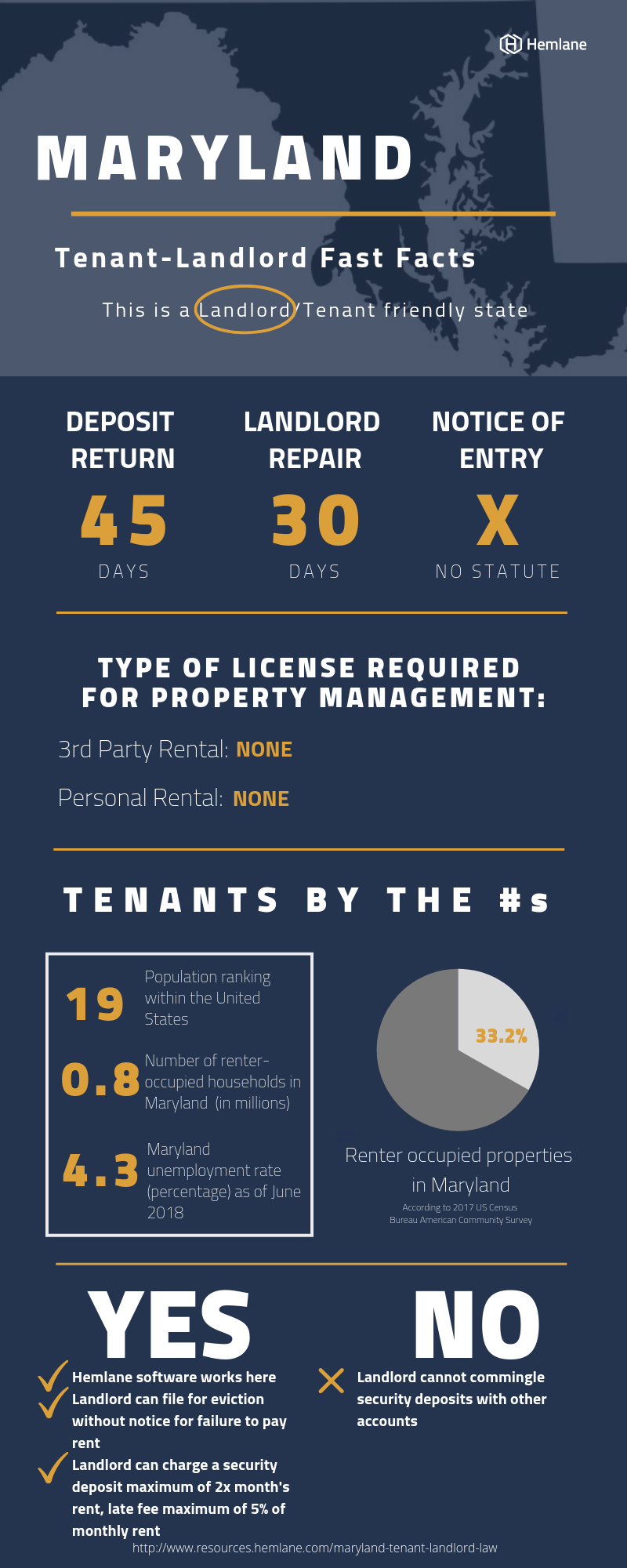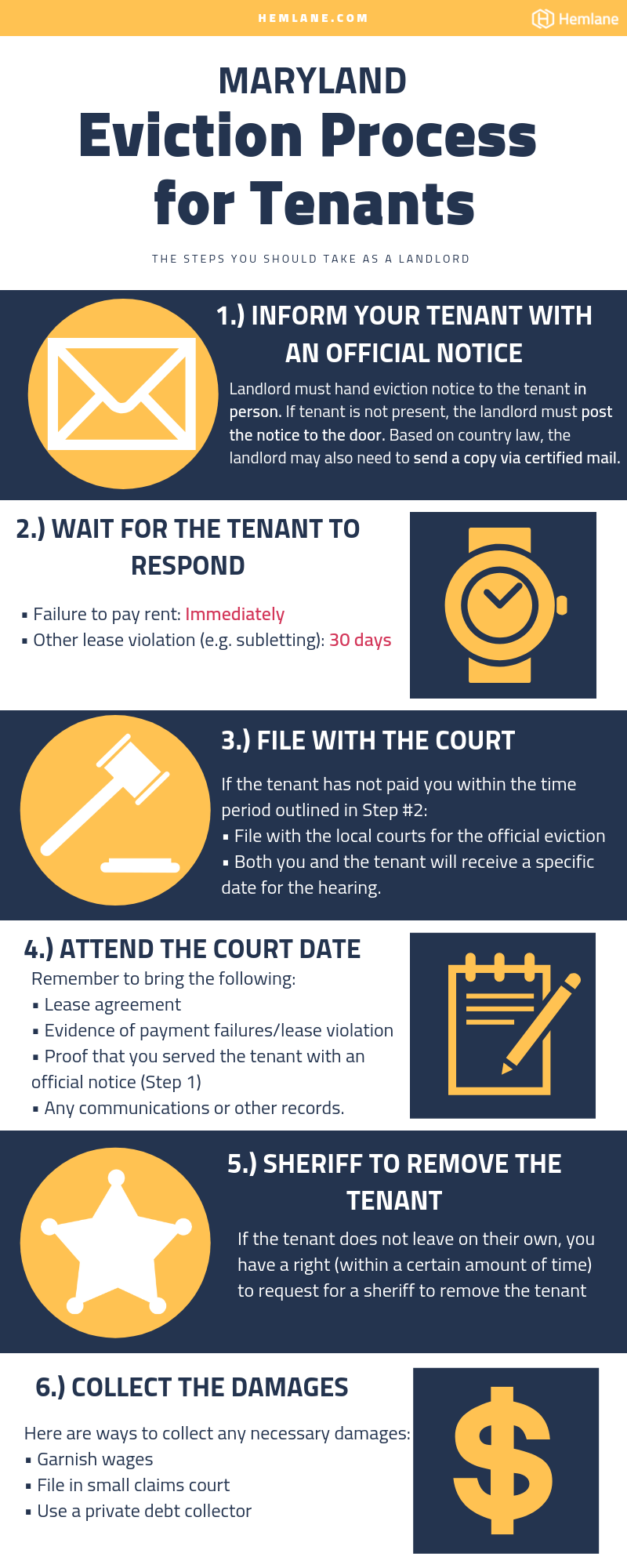Maryland Tenant-Landlord Law

Fair Housing
The Fair Housing Act was created in order to ensure that everyone is treated equally during the housing process. It protects tenants from discrimination when seraching for a rental property. At the federal level the Fair Housing Act protects the following classes:
- Race
- Color
- National Origin
- Religion
- Sex
- Familial Status
- Disability
Learn about fair housing at the federal level here
In addition to federal fair housing laws, Maryland prohibits the discrimination on the basis of:
- Sex
- Familial status
- Marital status
- Sexual orientation
- Gender identity
(MD §20-702)
Screening
- Reusable tenant screening reports: Landlords are required to notify prospective tenants in writing if they accept such reports (for example, in the rental listing).
- For landlords who offer five or more units for rent at one location, additional fees (other than a security deposit) over $25 that were not used towards a credit check or application process must be returned to the prospective tenant within 15 days of occupancy or written communication that no tenancy will occur.
HB0861/SB691
Security Deposits
- Maximum amount landlord can charge: A landlord may not charge a security deposit that exceeds the equivalent of 2 months’ rent, regardless of the number of tenants. Civ. Code (§8–203 (b) (1))
- Returning the security deposit: Must be returned within 45 days after the end of the tenancy with simple interest rate of 1.5% a year. Civ. Code (§8–203. (e) (1))
- Bank account requirements: Landlords are required to keep security deposits in federally insured financial institutions. The security deposit must be in an account within 30 days after the landlord receives it. Civ. Code (§8–203. (d) (i))
Rent and Late Fees
- Written lease agreement: A landlord who offers 5 or more rental properties within the state may not rent a residential dwelling unit without a written lease. Civ. Code (§8–208. (1))
- Rent increase notice: No law requiring rent increase notice.
- Late Fees: May not exceed 5% of rent due. If the rent is paid weekly landlord may charge $3 per week. Civ. Code (§8–208. (d) (3))
Notices and Entry
- Notice to terminate yearly lease: Notice in writing shall be given 3 months before the expiration of current year of the tenancy except for farm tenancies which shall be given 6 months. Civ. Code (§8–402. (b) (3))
- Notice to terminate month-to-month lease: Notice in writing of 1 month is required. Civ. Code (§8–402. (b) (3))
- Notice to terminate week-to-week lease: Notice in writing of 1 week is required. Civ. Code (§8–402. (b) (3))
- Tenant allowed to repair and deduct rent: Only under specific circumstances (Civ. Code §8–211)
Maryland Eviction Laws

-
When it is failure to pay rent, the tenant has to pay you immediately otherwise the eviction notice can be filed with the courts.
-
When there is another lease violation (e.g. subletting), the tenant has 30 days to resolve the violation from the point that the eviction notice is served. Otherwise the eviction notice will be filed with the courts.
-
Stopping the eviction: By paying full rent, along with any late fees and court costs by the day of the trial the eviction will not proceed. Civ. Code (§8–401. (C)( 5))
For more information on Maryland Landlord Tenant laws please visit their website here.
As the situation with COVID-19 continues to evolve, the moratorium on foreclosures and evictions will continue to impact millions of rental properties across the country. For the most up to date information on this legislation, as well as to see if your city or county has additional directives in place, please contact your local representative.




